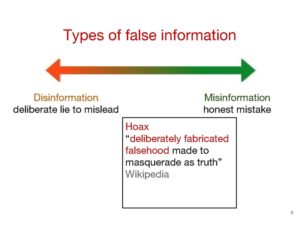 Many times the road to the truth contains unforeseen twists and turns since the journey can be adversarial. On one side of this process is the person who avoids telling the truth or intentionally deceives since oftentimes he or she has something to lose if the truth is uncovered. On the other side is the truth-seeker, and, if he or she does not possess the tenacity and the experience to ferret out the truth, the lie will stand in its place.
Many times the road to the truth contains unforeseen twists and turns since the journey can be adversarial. On one side of this process is the person who avoids telling the truth or intentionally deceives since oftentimes he or she has something to lose if the truth is uncovered. On the other side is the truth-seeker, and, if he or she does not possess the tenacity and the experience to ferret out the truth, the lie will stand in its place.
You, the truth-seeker, cannot control whether someone will try to lie; however, you can increase chances for a successful outcome to uncovering the truth. Herein below are additional Pointers (supplementing those presented last month) for getting to the Truth!
- Be careful not to overstep your authority! Dr. Joseph T. Wells, former Chairman of the Association of Certified Fraud Examiners (ACFE), reminds that any attempts to intimidate, coerce, threaten or obtain information / evidence in an unethical or illegal manner will come back to haunt you. Whether you are taking a deposition, conducting a pre-employment interview or taking a statement from a claimant or a witness to an event, you must play by the rules. “Don’t overstep your authority. Nothing good can come from it.”
- Be thorough; don’t stop looking for leads! Doing so will increase your chances to uncover the truth. Gathering relevant information prior to an interview should be routine; it is essential to preparation. Thinking about that information and developing theories about how it impacts on what you are doing or solving is the next step of the process. Finally, exhaust all avenues relating to the inquiry while maintaining a neutral approach. This methodology will provide you with the most informed way to the truth. Some call it the process of critical thinking while others harken the approach to what Socrates pioneered (Socratic questioning or maieutics) over 2400 years ago.
- Be cautious about expressing your opinion during questioning! Not only can you unintentionally influence the thought process of a witness by doing so, but you can provide a lier with a way to shape and falsify an outcome. Further, stating an opinion which could be construed as accusatory in nature might negatively impact the dialogue and thus be counterproductive. Those who are practiced and experienced at interviewing can intentionally present an opinion in a way to promote a desired effect. That is why interviewing is sometimes described more as an art than a science.
- Understand the difference between accidental and intentional! When you catch someone in a misstatement or an untruth, be cautious before drawing conclusions. Sometimes a factually inaccurate statement is accidental and just an honest mistake. Othertimes, it is intentional with the purpose to deceive and misinform. It is your job to gather enough information to confirm one way or the other. Appreciate that you may not be able to identify intent during the course of the questioning; however, plan to follow up as described in # 2 above and then proceed with a follow up interview thereafter. Whether you are questioning a witness at a deposition, interviewing a job applicant or taking a statement relating to a claim, thoroughness does not necessarily end at the conclusion of the interview.
- Finally, recognize that not every lie can be uncovered! Before Dr. Wells organized and established the ACFE, he was a Special Agent with the Federal Bureau of Investigation. He learned and came to appreciate (as I have also) that not every lier will be identified, and not every crime will be solved. Our nation operates with rules to protect its citizens. These are promulgated in our Constitution, federal and state court rules and law and administrative rules relating to all types of activities. Sometimes liers and those who commit unethical and / or illegal acts are protected by these laws and rules. Whether litigation, employment or claims related, sometimes the bad guys win. When you have prepared to the best of your ability and done the best job possible, try and find peace in the end result regardless of the outcome.
“There is a right way and a wrong way! In short, if you can’t play by the rules, you don’t deserve to win!” Dr. Joseph T. Wells, CFE, CPA, founder and past Chairman of the ACFE.
Research North, Inc. (RNI), is a professional private detective service providing support to the business community, the insurance industry and individuals in Michigan and Wisconsin since 1981. The company also offers pre-employment background checks to small and medium sized businesses through a subsidiary called Backgroundcheckswork.com that is fully staffed by professional investigators who are retired from law enforcement.
Delivering Information That Works For You
INSURED • QUALIFIED • THOROUGH • RELIABLE • CONFIDENTIAL • FAST